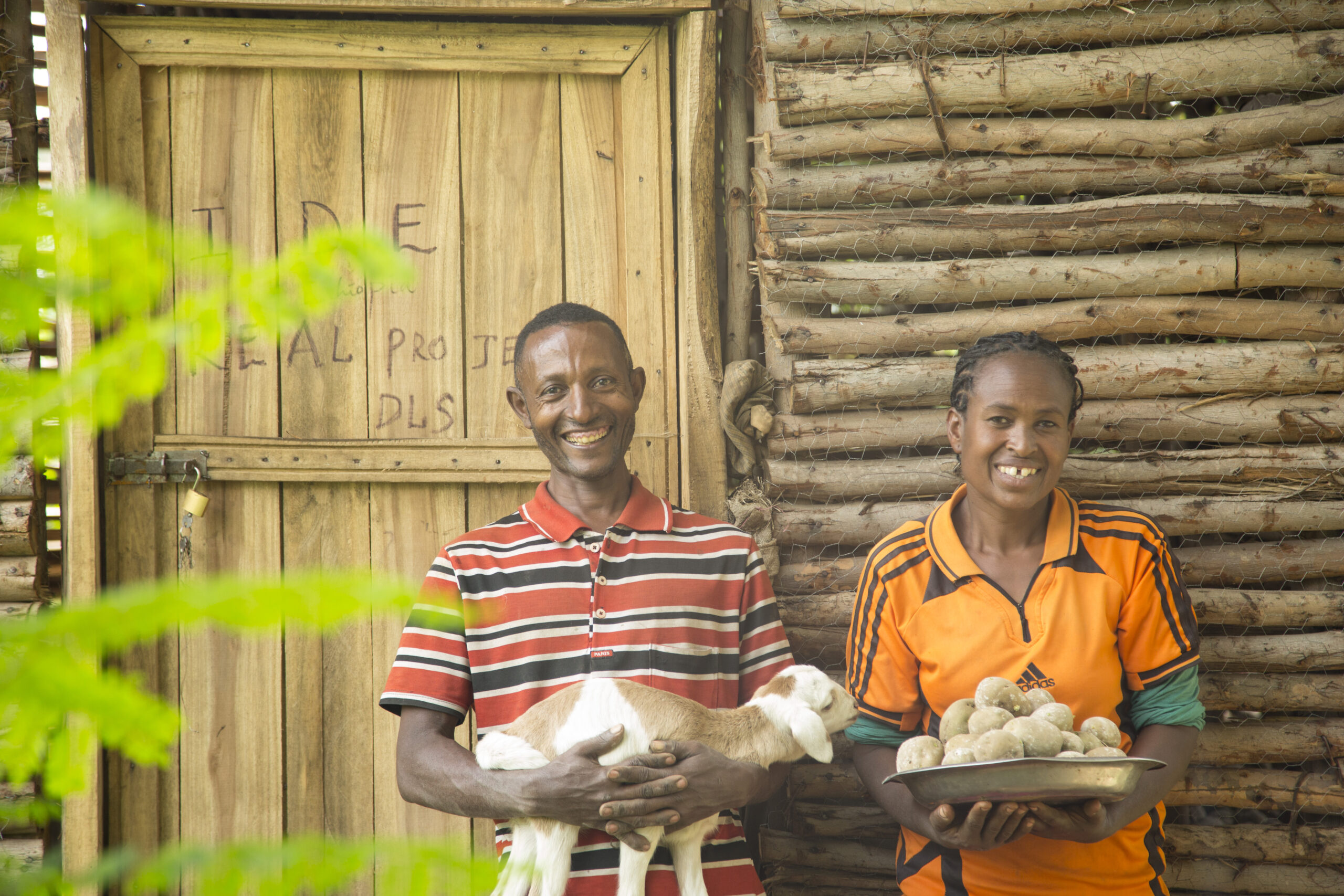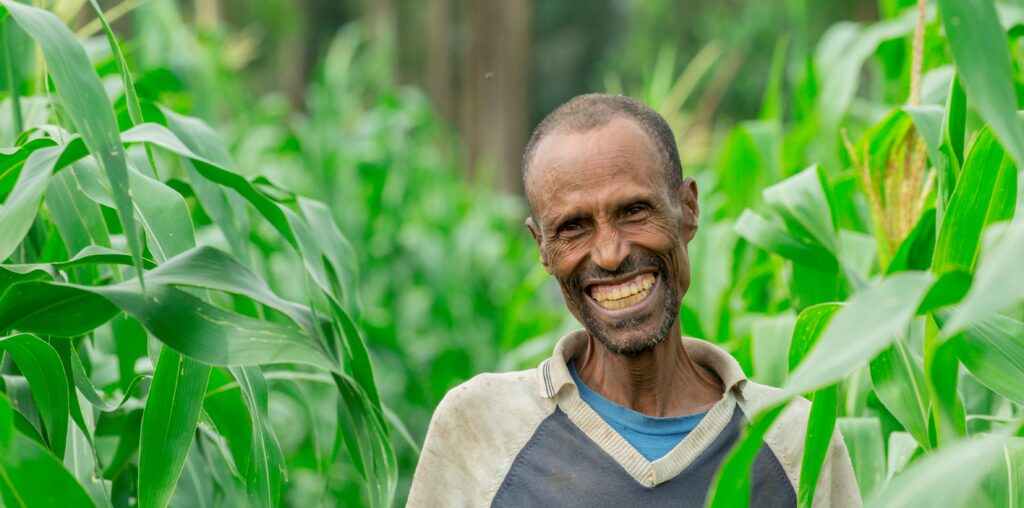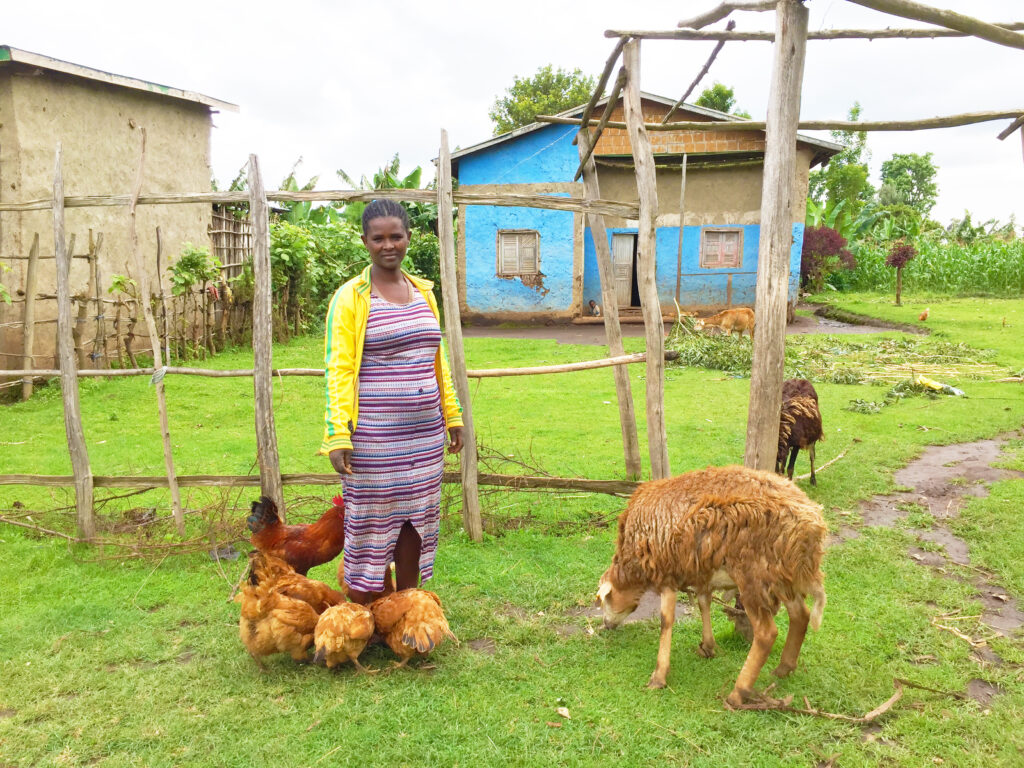Farmers in Ethiopia Are Growing in New Ways

With your support, farm families in Wolayta, Ethiopia can access the products and services they need to improve their crops and agricultural practices. Improvements mean more food on the table and more money in farmers’ pockets as they sell their crop surplus in the markets. These are just a few of the many farm families you are helping with your generous donations.
Enaso Erasho and Adanech Balcha
Enaso Erasho and Adanech Balcha are married and have four children. Like many farmers in Wolayta, they had limited access to quality seed and fertilizer, which resulted in poor crops and food shortages.
With your support, Enaso was given access to improved seed. This small change doubled his yield. Enaso has also learned proper land management techniques, how to market his crop, and how to store it.
Proper storage means he can sell his crop when prices are favorable rather than selling it just to ensure it doesn’t spoil. Enaso’s storage shed (shown left) is used as an example for other farmers who may want to build their own and is also used by others in his community.
Because of the support you have made available, Enaso has become a mentor to others, teaching 50 farmers from the surrounding community so far. Mentoring is a great way of sharing information and inspiration. As a local farmer, well known in his community, he leads by example.
Adanech also contributes to the farm’s bottom line. She participates in a women’s economic group, which teaches leadership skills, how to generate income, and how to save.
With Enaso and Adanech’s increased incomes, they are investing in their children’s education and have plans to expand their farm.
Seta Lachore

he’s in a better position to still put food on his family’s table and money in his pocket
Seta Lachore lives with his wife Abebech and their five children.
Seta used to buy seeds with money he secured from local money lenders. He used his land as collateral and received a 100 percent interest rate. With no savings, he had no choice.
iDE connected him with a microfinance institution and he has since purchased improved seed and gets a more reasonable interest rate. With the support you have made available through your generous gifts, he learned to diversify his crops, which means more variety in his family’s diet and he is less dependent on a single crop to generate income.
Seta’s wife Abebech is also making improvements to their farm. She is a member of a women’s economic group, which offered training in climate-smart agriculture, how to make compost and finances. Abebech took a loan from the group to start her own small-trade business. She was also the recipient of ten chickens and three sheep. The chickens are a much-needed source of nutrition for the family and eggs can be consumed at home or sold for additional income.
Because of you, Seta and Abebech are using their increased incomes to make improvements to their farm and home.
Kafelech Dawit

helping her build confidence and has given her a bigger say in household decision-making.
Kafelech Dawit is a farmer and small-scale trader. She lives with her husband and their six children.
Many women in rural Ethiopia work the least productive land, farthest from water, with little say in what they can grow or control over the income generated. Despite limited resources, they are responsible for all the housework, including gathering water and firewood, cooking, and childcare.
Because of your generous support, Kafelech joined a women’s economic group. They meet monthly to learn leadership skills, how to save, and how to generate income through activities like small-scale trade and agriculture.
Since working with the group, Kafelech has started buying products, such as butter, at the local market and then resells these at other locations where the prices are higher. She uses the profit to buy chickens, sheep, or goats, key assets for poor, rural households. Because of her new skills, made possible with your generosity, Kafelech says her husband now involves her more in making decisions for their household. This increases her confidence and gives her more freedom.
